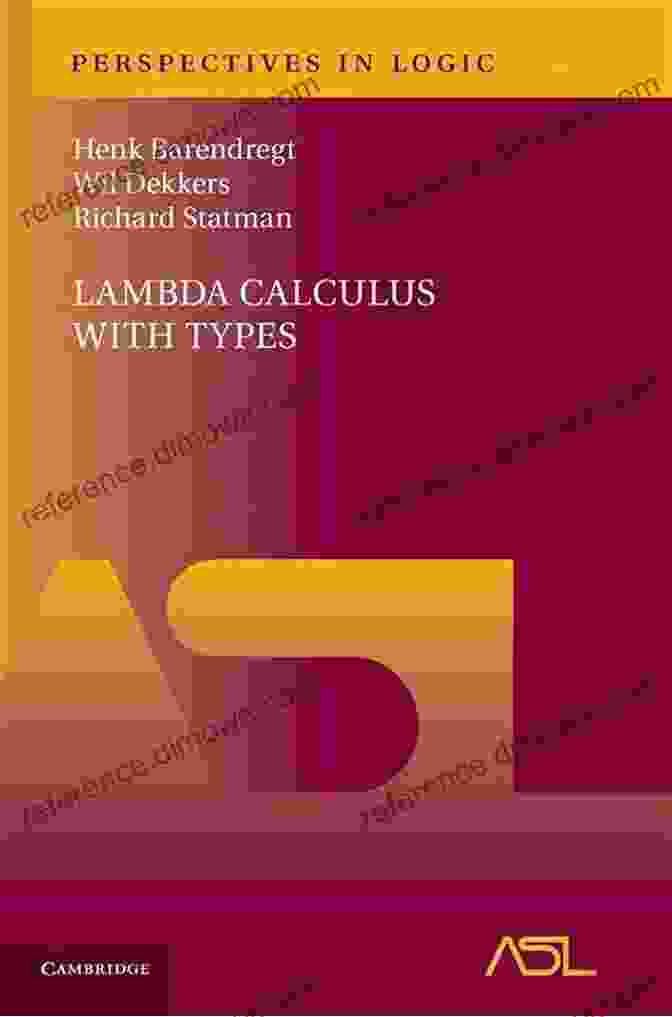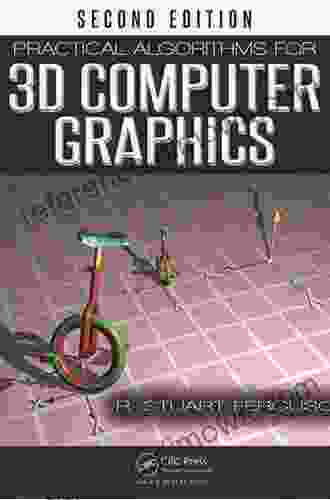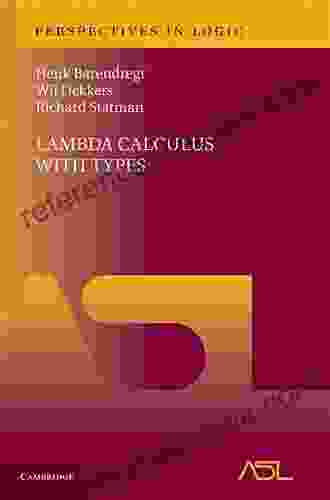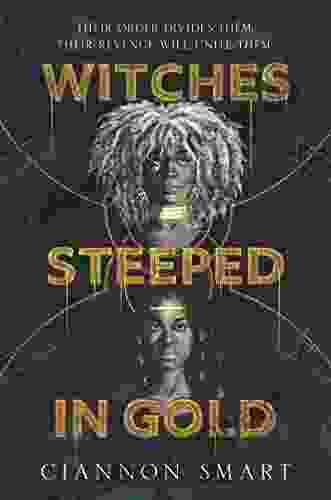Unveiling the Essence of Computation: Lambda Calculus With Types Perspectives In Logic

In the realm of computer science, one foundational concept that underpins the very nature of computation is lambda calculus. This powerful mathematical system provides a rigorous framework for representing and reasoning about computation, offering deep insights into the foundations of programming languages and software engineering.
Lambda calculus with types, an extension of classical lambda calculus, enriches the language by introducing types, which provide additional information about the structure and behavior of expressions. This extension adds a new dimension of expressivity and correctness, enabling the construction of programs that are both more reliable and easier to understand.
5 out of 5
| Language | : | English |
| File size | : | 57785 KB |
| Text-to-Speech | : | Enabled |
| Screen Reader | : | Supported |
| Enhanced typesetting | : | Enabled |
| Print length | : | 1241 pages |
The Essence of Lambda Calculus
The essence of lambda calculus lies in its ability to represent functions as first-class values. This means that functions can be passed as arguments to other functions, returned as results, and even modified and inspected during execution. This fundamental principle provides the foundation for the higher-Free Download programming paradigm, a cornerstone of modern functional and object-oriented programming languages.
In lambda calculus, the basic building blocks are terms, which can either be variables, constants, or function abstractions. A function abstraction is denoted by the lambda symbol (λ),followed by a variable (the bound variable) and an expression (the function body). The general form of a function abstraction is λx.e, where x is the bound variable and e is the function body.
To apply a function to an argument, the function abstraction is prefixed to the argument. The function body is then substituted for all occurrences of the bound variable, resulting in a new term. This process can be repeated recursively, allowing functions to be composed and combined in complex ways.
Type Systems and Lambda Calculus
The inclusion of types in lambda calculus provides a powerful mechanism for statically checking programs for correctness. Types annotate expressions, indicating the kind of values they represent. This information enables the type checker to identify potential type errors, such as attempting to apply a function to an argument of the wrong type.
Type systems in lambda calculus with types are typically based on the concept of well-formedness. A well-formed expression is one that has a valid type according to the rules of the type system. Expressions that are not well-formed are considered type errors and are typically flagged by the type checker.
The presence of types not only enhances the reliability of programs but also improves their readability and maintainability. By clearly specifying the types of expressions, programmers can quickly identify the intended behavior of code and spot potential errors. This reduces the likelihood of runtime exceptions and makes it easier to refactor and evolve codebases over time.
Perspectives in Logic
Lambda calculus with types has a deep connection to logic, particularly proof theory and category theory. From a logical perspective, lambda calculus can be viewed as a formal system for representing and reasoning about proofs. Types can be interpreted as logical propositions, and function abstractions can be seen as rules of inference.
This logical interpretation provides a powerful foundation for reasoning about the correctness of programs. Logical techniques can be employed to prove theorems about lambda calculus expressions, ensuring that they behave as intended and do not contain any type errors.
Additionally, the categorical perspective on lambda calculus reveals its close relationship to the mathematics of categories. Lambda calculus can be seen as a special case of category theory, providing a natural setting for studying the structure and composition of functions. This categorical interpretation offers valuable insights into the fundamental properties of computation and has led to the development of advanced type systems and programming languages.
Applications of Lambda Calculus With Types
Lambda calculus with types has numerous applications in computer science, ranging from programming language design and implementation to automated theorem proving and cryptography.
In programming language design, lambda calculus with types serves as the theoretical foundation for functional programming languages, such as Haskell, OCaml, and Standard ML. These languages embrace the power of types to enhance the reliability, expressiveness, and efficiency of code.
Lambda calculus with types also plays a crucial role in automated theorem proving. Proof assistants, such as Coq and Isabelle, use lambda calculus with types as their underlying logic. These tools enable mathematicians and computer scientists to formalize and verify complex mathematical theorems, ensuring their correctness and consistency.
In cryptography, lambda calculus with types provides a formal framework for studying the security of cryptographic protocols. By representing protocols as lambda calculus expressions and annotating them with types, researchers can use type checkers to identify potential vulnerabilities and ensure the confidentiality and integrity of communications.
Lambda Calculus With Types Perspectives In Logic delves into the depths of this foundational concept, providing a comprehensive exploration of its theoretical underpinnings, practical applications, and connections to logic and mathematics. Whether you're a computer scientist, mathematician, or anyone fascinated by the nature of computation, this book offers a profound journey into the essence of programming and the power of types.
By embracing the principles of lambda calculus with types, you will gain a deeper understanding of how computers work, how to write more robust and correct programs, and how to harness the power of logic and mathematics to enhance your software development skills. Lambda Calculus With Types Perspectives In Logic is an essential resource for anyone seeking to advance their knowledge of computer science and unlock the full potential of modern programming languages.

5 out of 5
| Language | : | English |
| File size | : | 57785 KB |
| Text-to-Speech | : | Enabled |
| Screen Reader | : | Supported |
| Enhanced typesetting | : | Enabled |
| Print length | : | 1241 pages |
Do you want to contribute by writing guest posts on this blog?
Please contact us and send us a resume of previous articles that you have written.
 Book
Book Novel
Novel Page
Page Chapter
Chapter Text
Text Story
Story Genre
Genre Reader
Reader Library
Library Paperback
Paperback E-book
E-book Magazine
Magazine Newspaper
Newspaper Paragraph
Paragraph Sentence
Sentence Bookmark
Bookmark Shelf
Shelf Glossary
Glossary Bibliography
Bibliography Foreword
Foreword Preface
Preface Synopsis
Synopsis Annotation
Annotation Footnote
Footnote Manuscript
Manuscript Scroll
Scroll Codex
Codex Tome
Tome Bestseller
Bestseller Classics
Classics Library card
Library card Narrative
Narrative Biography
Biography Autobiography
Autobiography Memoir
Memoir Reference
Reference Encyclopedia
Encyclopedia Matt Sakakeeny
Matt Sakakeeny Kat Zhang
Kat Zhang Abhishek Singh
Abhishek Singh Adam Griffith
Adam Griffith Peter Saveliev
Peter Saveliev A T Sorsa
A T Sorsa Montana Ross
Montana Ross Lisa Mckay
Lisa Mckay Johanna Marthens
Johanna Marthens Joshua Griffith
Joshua Griffith Frances H Kennedy
Frances H Kennedy Franco Cataldo
Franco Cataldo Sherrill Grace
Sherrill Grace Sarah Archer
Sarah Archer M A Owens
M A Owens Karen Mcquestion
Karen Mcquestion Adam Scott Kennedy
Adam Scott Kennedy Aaron Baker
Aaron Baker Eduardo P Archetti
Eduardo P Archetti A L Galbraith
A L Galbraith
Light bulbAdvertise smarter! Our strategic ad space ensures maximum exposure. Reserve your spot today!

 Lawrence BellUnveiling the Secrets of Rapanui: Discover the Enchanting World of Easter...
Lawrence BellUnveiling the Secrets of Rapanui: Discover the Enchanting World of Easter... Derrick HughesFollow ·16.3k
Derrick HughesFollow ·16.3k Oliver FosterFollow ·3.8k
Oliver FosterFollow ·3.8k Ian McEwanFollow ·15.9k
Ian McEwanFollow ·15.9k Denzel HayesFollow ·17.8k
Denzel HayesFollow ·17.8k Yasunari KawabataFollow ·12k
Yasunari KawabataFollow ·12k Felix CarterFollow ·15.4k
Felix CarterFollow ·15.4k Walt WhitmanFollow ·14.5k
Walt WhitmanFollow ·14.5k Harrison BlairFollow ·14.9k
Harrison BlairFollow ·14.9k

 Julio Cortázar
Julio CortázarShift Your Perspective, Seize Your Potential, Own Your...
A Transformative Guide to...

 Isaias Blair
Isaias BlairPractical Algorithms For 3d Computer Graphics: Unlocking...
In the realm of digital artistry, 3D computer...

 Joseph Heller
Joseph HellerClear Vision Through Cloudy Eyes: A Guide to Overcoming...
Have you ever felt...

 Leo Tolstoy
Leo TolstoyThe True Story of My Fairygodparent Who Almost Killed Me...
Book Description In this captivating...

 Earl Williams
Earl WilliamsCanada 10 Must Visit Locations: A Captivating Journey...
Prologue: A...
5 out of 5
| Language | : | English |
| File size | : | 57785 KB |
| Text-to-Speech | : | Enabled |
| Screen Reader | : | Supported |
| Enhanced typesetting | : | Enabled |
| Print length | : | 1241 pages |











